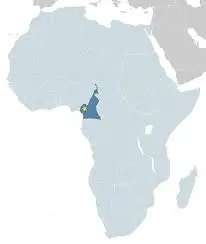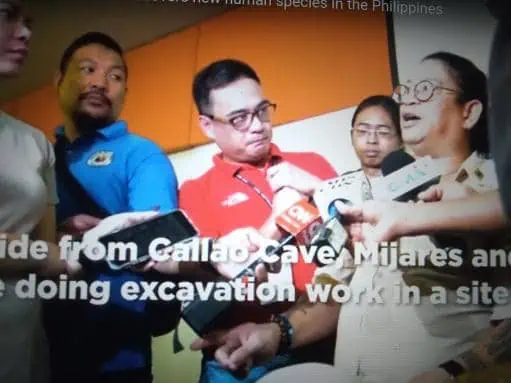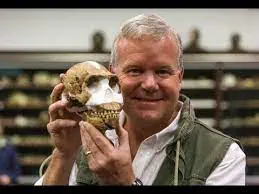Primitive Archaic DNA – Link to recent re-analysis from hominid fossils found in Cameroon cave?
 A new study was released in late January by the UCLA genetics lab suggesting modern humans in western Africa have far more archaic hominid DNA than previously believed.
A new study was released in late January by the UCLA genetics lab suggesting modern humans in western Africa have far more archaic hominid DNA than previously believed.
As The Guardian explains, Feb. 12:
Unlike today, the world was once home to many related species or subspecies of human. And when they stumbled upon one another, mating was not out of the question. As a result, modern Europeans carry a smattering of Neanderthal genes, while indigenous Australians, Polynesians and Melanesians carry genes from Denisovans, another group of archaic humans.
Previous studies have hinted that other ancient humans once roamed Africa, but without any fossils or DNA to pore over, researchers have struggled to learn more about them.
According to the BBC, Feb. 14, three main groups in West Africa were studied. They pulled DNA from 405 people from the Mende, Yoruba, and Esen people.
It suggests that ancestors of modern West Africans interbred with a yet-undiscovered species of archaic human, similar to how ancient Europeans mated with Neanderthals, and Oceanic populations with Denisovans.
Interbreeding with this ghost species, probably occurred 40,000 years ago, according to the UCLA researchers.
“Our findings are very exciting” — Sriram Sankararaman, Univ. of California computational biologist
 From NPR interview, Feb. 12, computational biologist Sriram Sankararaman,
From NPR interview, Feb. 12, computational biologist Sriram Sankararaman,
[We pulled out] chunks of DNA, which we believe are likely to come from populations that are not modern human.
Of particular interest to readers of this website, there are indications this may be the same group discovered in Cameroon. Researchers re-analyzed DNA from fossils found in a cave in western Cameroon 30 years ago.
From Alternet.org, Feb. 12,
Early humans in Africa may have interbred with a mysterious, extinct species: study
A 2017 study of ancient DNA from southern Africa investigated 16 ancient genomes from people alive over the last 10,000 years.
It’s a result that was supported earlier this year by a paper examining ancient DNA from four individuals from what is now Cameroon. Taken together, this research suggests there were geographically diverse groups in Africa well before the main expansion out of the continent. And many of these groups will have contributed to the ancestry of people alive in Africa today.
As the UK Daily Mail reports, Feb. 11,
DNA reveals ancient Africans bred with new unknown race of humans just 50,000 years ago
It is not the first time ‘ghost DNA’ has been identified in the genes of Africans.
In January, DNA discovered in four skeletons that belonged to children buried at a rock shelter at an archaeological site called Shum Laka in Cameroon also point to the existence of a long-lost ‘ghost’ branch of the human family tree.
All four skeletons inherited about one-third of their DNA from ancestors similar to the hunter-gatherers of western Central Africa.
We reported on this new development, just last week here at Subspecieist.
Further background from a Research Paper co-authored by Chris Stringer, someone very familiar to readers of this site, from 2013:
The Iwo Eleru skeleton was excavated from the rock shelter of this name in 1965 by Thurstan Shaw and his team. This contracted
burial was found in a level with Late Stone Age (LSA) artefacts, and a radiocarbon determination on associated charcoal gave an
(uncorrected) age of 11,200 ± 200 BP. The excavators went to considerable trouble to satisfy themselves that the specimen was in situ.
There is no occupation prior to the LSA and only slight indications of a subsequent “iron age” occupation. The results highlight our present relative lack of knowledge concerning the identity of the manufacturers of LSA artefacts in West Africa and other parts of the continent.
You can read the full paper at the University of Sheffield, pdf.



Great content! Super high-quality! Keep it up! 🙂
More science to come.